Discover Bungacast
Bungacast

Bungacast
Author: Bungacast
Subscribed: 1,012Played: 65,327Subscribe
Share
© Copyright 2017 All rights reserved.
Description
The global politics podcast at the end of the End of History. Politics is back but it’s stranger than ever: join us as we chart a course beyond the age of ’bunga bunga’. Interviews, long-form discussions, docu-series.
537 Episodes
Reverse
On US derangement on screen.
The OG Bunga boys get togther for the annual end-of-year film episode. We discuss Ari Aster's Eddington, as well as a bit of Paul Thomas Anderson's One Battle After Another and Yorgos Lanthimos' Bugonia: the three films that together marked 2025, and which deal with paranoia, conspiracy, disinformation and unmoored political activity.
Is this hyperpolitics on screen?
Do these films serve any critical purpose?
Is Eddington a faithful depiction of the society of immediacy or is it guilty of immediacy itself?
Are we all fkin r*****ed?
For the full episode, subscribe at patreon.com/bungacast
Links:
/520/ Conspiracy Culture & Paranoid Styles ft. Catherine Liu
Hell in Ari Aster, Tara Heffernan & Felix McNamara, Corporate Total Art
/458/ The Society of Pure Vibe ft. Anna Kornbluh (on 'immediacy')
America’s Unraveling on Screen, Monica Marks, New Lines Magazine
On homoploutia and national market liberalism.
Branko Milanovic, Research Professor at City University of New York, talks to Phil and Alex about his most recent book, The Great Global Transformation: National Market Liberalism in a Multipolar World.
What unites the political trajectories of Xi Jinping, Vladimir Putin and Donald Trump?
How is global inequality, growth and political conflict evolving in the aftermath of globalisation?
How are hierarchies of global income shifting as the world rebalances towards East Asia?
What kind of political theories can we use to model the emergence of this new multipolar world – Adam Smith, Lenin, Luxembourg or John Rawls?
And what is Homoploutia?
Links:
The Great Global Transformation: National Market Liberalism in a Multipolar World, Branko Milanovic
Global Inequality 3.0 and More, Branko's substack
An Economist’s Case for Open Borders, Branko Milanovic, Dissent Magazine
The ‘homoploutic’ elephant, with Branko Milanović, FT
On overmedicalisation and the crisis of authority.
Amber Trotter, practicing psychologist and an editor at Damage magazine, and George Hoare tell Alex about their co-written article in the print issue of Damage on "the pre-political".
What is driving the explosion in mental health diagnoses? Why are people seeking diagnosis?
How is it the product of the subjective and the purely scientific?
Does capitalism make us ill? Is blaming 'capitalism' abstractly part of the problem?
What is the crisis of authority? Whose authority?
Can we solve pre-political problems with politics? And political problems with pre-political approaches?
Damage, Issue 5: The Pre-Political
On post-woke strategies.
Ryan Z is back on, talking to Alex and George about the US Democrats' attempt to respond to Trump/MAGA.
In association with Damage magazine.
Can the Democrats escape the shadow of woke?
Is Big Woke dying? Everywhere?
Who are the groups and think-tanks pushing for a reorientation, and what are they proposing?
Will the Dems adapt to Trump’s challenge or pretend nothing is happening?
We then take listener questions and comments on transport infrastructure, left-wing gatekeeping, and the crisis in education everywhere, high and low.
For the full episode, subscribe at patreon.com/bungacast
Links:
Can the Democrats Escape the Shadow of Woke?, Ryan Zickgraf, Damage
Inside the Democratic identity crisis, Ryan Zickgraf, UnHerd
On legitimacy and chronic crisis.
Benjamin Studebaker talks to Alex and Lee about his book, Legitimacy in Liberal Democracy – and why the absence of the threat of revolution makes the crisis drag on.
What's wrong with 20th century accounts of legitimacy crises? What's changed?
Why is contemporary politics so stuck? Is it inescapable?
How does the breakdown of consensus make the emergence of a social majority so difficult?
Is there no common programme we can agree on, focused on bread-and-butter issues?
Do we need to stare despair in the face? Is catastrophe the only way out?
For the full episode, subscribe at patreon.com/bungacast
Links:
Legitimacy in Liberal Democracy, Benjamin Studebaker, Edinburgh UP
UNLOCKED: /361/ A Nightmare on the Brains of the Living ft. Benjamin Studebaker
Debilitated democracy: When the legs get ripped off, Dirk Jörke and Benjamin Studebaker, European Journal of Social Theory
On the crisis in literacy.
Poet, podcaster and teacher, C. Derick Varn – who has taught in Mexico, Korea, Egypt and the US, at various levels – joins Alex and George to interrogate the coming "post-literate society".
What do we mean when we say 'post-literate'?
This seems a global problem – so is it a problem of the education system?
Is it as simple as blaming smartphones?
How else has education become degraded? How have progressives and conservatives combined to do this?
Are we becoming on oral culture again? What are the consequences?
For the full episode, subscribe at patreon.com/bungacast
Links:
Are we becoming a post-literate society?, Sarah O'Connor, FT
Have humans passed peak brain power?, John Burn-Murdoch, FT
Visible Learning (synthesis of meta analyses), John Hattie
Why Knowledge Matters, ED Hirsch, Harvard
Seven Myths about Education, Daisy Christodoulou
Insensitivity Readers!, Nina Power
In this special episode, we present talks given by contributing editor Catherine Liu and co-host George Hoare on the paranoid style at a recent conference at UC Irvine, co-hosted by the Palm Springs School for Social Research.
00:01:23 – Catherine Liu: Opening Remarks, on Richard Hofstatder’s classic essay “The Paranoid Style in American Politics”
00:12:18 – George Hoare: The Paranoid Style in British Politics
00:36:06 – Catherine Liu: "Zombies Clowns and Gangsters"
For the full episode, subscribe at patreon.com/bungacast
On the middle classes and cultural compression.
For the concluding episode of the 2024/25 Reading Club, we discuss C. Wright Mills' White Collar, plus some additional short texts on what mass culture is like today.
credit: Ryan Zickgraf, based on The Wilson Quarterly/Russell Lynes 1949
For the full episode, subscribe at patreon.com/bungacast
Does Mills' account of the “economic psychology” of the White Collar worker still ring true today?
What about their "political psychology"?
What is the state of White Collar trade unionism today?
Is there no possibility of the middle class leading a political movement?
Do the distinctions of high- middle- and low-brow still make sense today, in our era of levelling-down and slop?
Should we defend democracy in the economy and elitism in culture?
Readings:
White Collar: The American Middle Classes, C. Wright Mills, 1951 (esp final two chapters)
Highbrow, Middlebrow, Lowbrow, Russell Lynes, Wilson Quarterly, 1976 reprint of 1949 article (pdf attached)
Post-Mass Culture, Dylan Riley, Sidecar
Unionizing the “Cultural Apparatus”, Nelson Lichtenstein, Jacobin
On technology, transhumanism, and progress.
James Hughes (Exec Director, Institute for Ethics and Emerging Technologies) and Eli Sennesh (postdoc, Vanderbilt) present a futurist approach to Alex and contributing editor Leigh Phillips.
What is wrong with the acronym TESCREAL?
Why is it wrong to worry about future transhumanism when we need to grapple with the technologies of now?
What are the limits of bourgeois futurism? What is an alternative futurism?
Has AI changed everything? Will it?
Are we actually living in an age of rapid technological advance?
Links:
Conspiracy Theories, Left Futurism, and the Attack on TESCREAL, James Hughes & Eli Sennesh
/306/ AI Capitalism: Inhuman Power
/335/ AI & the End of the End of History
/446/ The Techno-Fantasy of Perfect Freedom ft. Amber Trotter
/488/ Homo-Techno, Homo-Solo ...Post-Homo? ft. Alex Gendler
The Obama-to-Yarvin Pipeline, Geoff Schullenberger, Compact Substack
On free speech, the tech right, and politicisation.
Geoff Shullenberger, managing editor at Compact, joins Alex and George to talk about Peter Thiel, René Girard, victimhood and the antichrist.
Does it make sense to talk of "right-wing cancel culture"? Is it different from the left's?
Is countercultural trolling in tension with "defending Western civilisation"?
What does René Girard argue about mimesis and scapegoating? Why have his theories become popular?
Is right-populism still politicising? How does it relate to libertarian anti-politics and hard-right militarisation?
How has Silicon Valley libertarianism adapted to the new state-capitalist disposition?
For the full episode, subscribe at patreon.com/bungacast
Links:
René Girard and the Rise of Victim Power, Geoff Shullenberger, Compact
The Real Stakes, and Real Story, of Peter Thiel’s Antichrist Obsession, Laura Bullard, Wired
The Faith of Nick Land, Geoff Shullenberger, Compact
On places of ritual.
Architect Pier Paolo Tamburelli talks to Alex about his project to catalogue modern wonders – structures that are very big, that pretend to be ancient, and are mostly ugly.
For the full episode subscribe at patreon.com/bungacast
How has architecture lost its ritual dimension?
Why are these "modern wonders" kitsch? And why are they found the world over, from Munich to Malaysia, South Dakota to Dakar?
Do 'wonders' speak to a world where places remain distinct, and where conflicts and history seem to have returned?
Are disillusioned and cynical postmodern subjects searching for wonder?
Can architecture rebuild society?
Links:
Wonders of the Modern World, Arch+, issue 259
Wonders of the Modern World: Notes for a Research Programme, Pier Paolo Tamburelli, Arch+ (pdf attached in patreon)
What's wrong with the primitive hut?, Pier Paolo Tamburelli, San Rocco (pdf attached in patreon)
On 20 years since the 2005 riots.
Fred Lyra, philosopher and musicologist based in Paris, joins Alex to talk about France through 4 moments: 1995 – the last moment of classic class struggle; 2005 – riots in the banlieues; 2015 – Islamist terror; 2025 – government collapse.
For the full episode, subscribe at patreon.com/bungacast
How were the riots normalised? And what was the state's response?
Why did the riots prompt debates about "models of integration"?
Why is there an "excess" of state in the banlieues, and an absence of state in left-behind smaller cities?
How did France go from the Nuits Debouts protests to the Gillet Jaunes – and how did they differ?
What about Bloquons Tout protests and the repeated fall of governments today?
Links:
The Peripherisation of France, Fred Lyra, A Terra É Redonda
Two, Three, or More Fractures in French Society?, Fred Lyra, A Terra É Redonda
Bonapartist Solutions, Dylan Riley, Sidecar
Nuits Debout: Up All Night, Fred Lyra, Lavra Palavra
On the weakness of state and capital – and their fusion.
Ilias Alami joins Alex and Lee to talk about his essential co-authored book, The Spectre of State Capitalism.
Why is state capitalism not just a China story, but is global?
What does the rise of state capitalism tell us about the health of contemporary capitalism?
How did globalisation and stagnation combine to give birth to it?
Is this an extension of neoliberalism or something new and different?
Does this represent a 're-politicisation' of the economy – and does it open up more hopeful political futures?
Links:
The Spectre of State Capitalism, Ilias Alami & Adam D Dixon, Oxford UP [OPEN ACCESS]
On living with modernity.
Richard J Williams talks to Alex and George about his new book, The Expressway World and how cities have adapted to the infrastructural legacies of the mid-20th century. We talk about New York, London, São Paulo, Madrid, Glasgow and Seoul.
Why do people hate expressways – and who actually loves them?
What are Big Man cities? How do expressways bring together populism, authoritarianism, and capital?
Why is the antidote to 20th century car-centricity always gentrified and sanitised public space?
What are the class struggles that emerge over the expressway world?
Is there a basic lie behind many "ecological" infrastructure projects?
Links:
The Expressway World, Richard J Williams, Polity
Intersections, Owen Hatherley, Sidecar
/113/ Globoville ft. Richard Williams
On the Bolsonaros, Milei and MAGA.
Alex talks to Guilherme Casarões, Associate Professor of Brazilian Studies at Florida International University, about Bolsonaro's sentencing, Trump's tariffs on Brazil, and the bailout of Milei.
Is the motivation behind the tariffs on Brazil just partisan interest?
How has Jair Bolsonaro's son, Eduardo, become point-man for the Latin American radical right's connection to MAGA?
Is Bolsonarismo the closest to MAGA among the global radical right?
Will a "Populist International Order" follow the Liberal International Order?
Why is the nationalist Trump bailing out the libertarian Milei?
For the full episode, subscribe at patreon.com/bungacast
Then George, Alex and Ryan Zickgraf discuss the global radical right and whether Charlie Kirk's killing was its "George Floyd moment".
Finally, the boys take listener questions & comments from the past month. (NB recorded 25 September)
On Göran Therborn's article, "Dreams and Nightmares of the World's Middle Classes".
The penultimate episode of this block on the middle class, we discuss the differing fortunes and politics of the global North and South middle-classes – as well as ways they may be similar.
Subscribe at patreon.com/bungacast
Is the middle-class dream increasingly only a dream?
Can the "ever-rising middle-class wave" in China and India sustain itself?
Is being middle-class defined by one's consumption? By income? By something else?
How have fears changed: from being politically "squeezed" between to proletariat and bourgeoisie, to being economically "squeezed" and fearing falling?
What politics do the middle-classes generate? What kind of populism?
On the UK's working-class unrest.
Sociologist Lisa McKenzie talks to Alex and contributing editor Lee Jones about why the country feels like a powder-keg.
What's behind protests like Unite the Kingdom? How responsible are far-right agitators?
Why are threats posed to women and children such an explosive issue?
What is the type of nationalism that is behind the proliferation of English and British flags?
What are Farage's Reform promising and will they deliver? What of the immigration question?
How is Corbyn's "Your Party" going, and why can't the Left seem to speak for or to the working class?
Links:
Getting By: Estates, Class and Culture in Austerity Britain, Lisa McKenzie, Bristol UP
Lockdown Diaries of the Working Class, Lisa McKenzie
James Treadwell thread on raising of flags, X
On critiques of entertainment.
New contributing editor Ryan Zickgraf joins Alex and George to talk about the history of media critique and contemporary cases.
How does consensus-age comedy like King of the Hill deal with hyperpolitics today?
Is the reliance on archetypes a problem, or inherent to all comedy?
Why is Neil Postman's Amusing Ourselves to Death still relevant?
Is the Gen X critique of 'couch potatoes' and TV-watching similar to today's techlash?
Have we become insensible to contradiction?
Links:
We’re still distracting ourselves to death, Ryan Zickgraf, UnHerd
King of the Hill reboot is ill-suited to the Trump age, Ryan Zickgraf, UnHerd
On slavery, racism, and the politics of freedom.
Renowned sociologist Orlando Patterson talks to contributing editor Alex Gourevitch about themes brought up by his recent The Paradox of Freedom as well as his works as a whole.
Why is the study of slavery too affected by the exceptional US American experience?
In what way is violence a constitutive feature of slave relations that aren’t true of others?
Are we still mired in a politics of ethnic chauvinism?
What does it mean for ethnic minorities to engage in self-criticism?
Is there a politics of freedom that is hopeful today or has it been eclipsed?
The fifth and final part of a series on generational consciousness and conflict.
In this episode, we examine the Millennials and Generation Z. Uniquely, generation war today seems to be a conflict over resources more than over values. Is there any basis for this, and what do Millennials actually want? With generational and class conflict seemingly bound together today, we analyse 'Generation Left' and 'Millennial Socialism'. And we ask what the effect of the pandemic may be on the creation of a Gen Z consciousness.
Guests include:
Paul Taylor, former director, Pew Research
Jennie Bristow, senior lecturer in sociology at Canterbury Christ Church University
Helen Andrews, senior editor at The American Conservative
Clive Martin, journalist who has written for VICE Magazine
Josh Glenn, semiotician, author, and publisher of HiLoBrow
Jennifer Silva, assistant professor in sociologist, Indiana University
Original music by: Jonny Mundey
Additional music:
Cacti / I Will Be Waiting / courtesy of epidemicsound.com
Filthy the Kid / Vampire / courtesy of epidemicsound.com


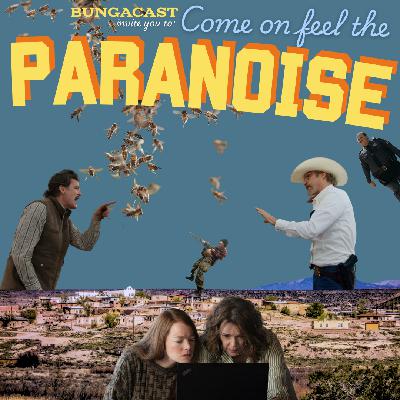
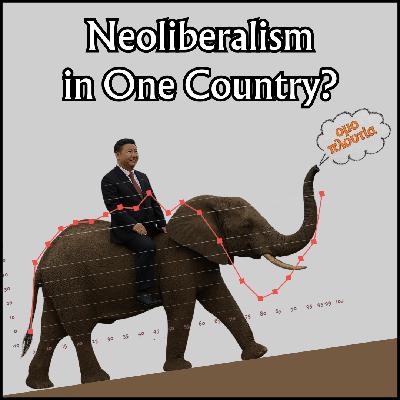
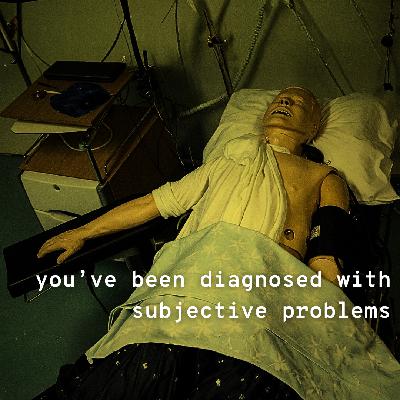
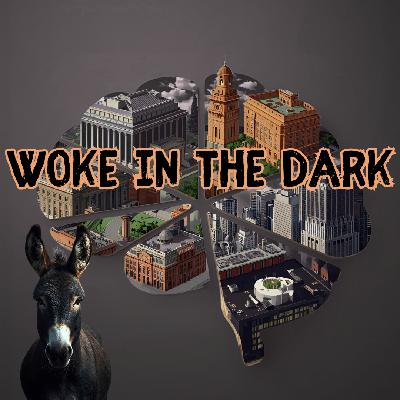
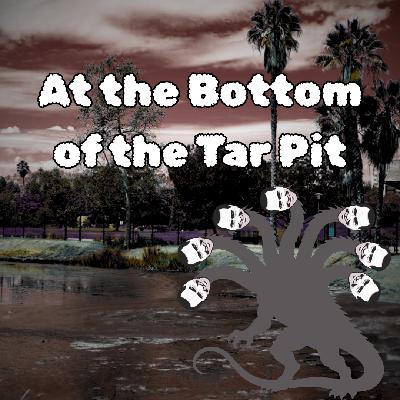
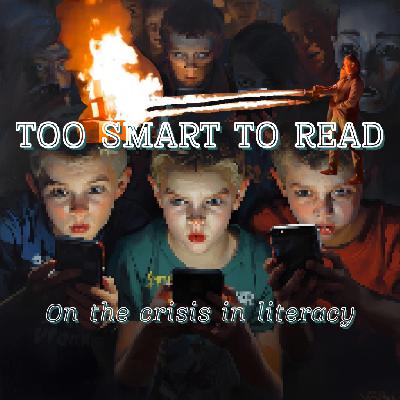
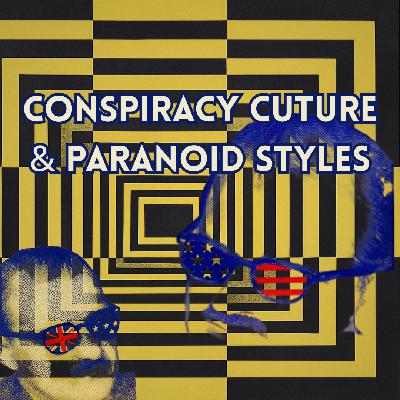

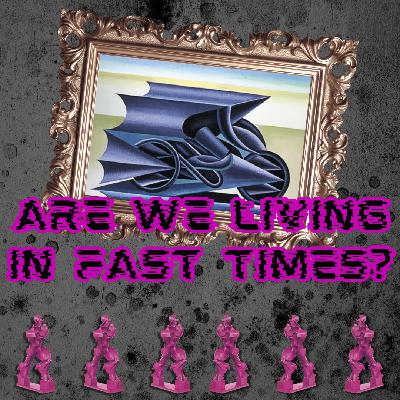



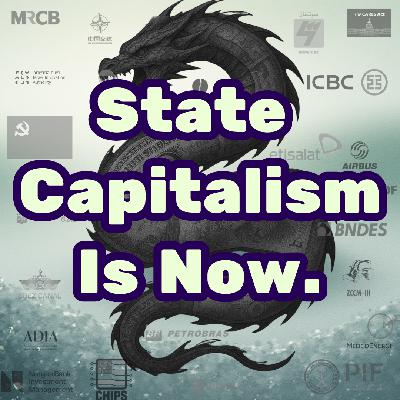










I love Catherine because she always replies to my dumb comments on twitter
My takeaway from this is that John McAfee is off his fucking rocker. Holy shit, that maniacal laughter.